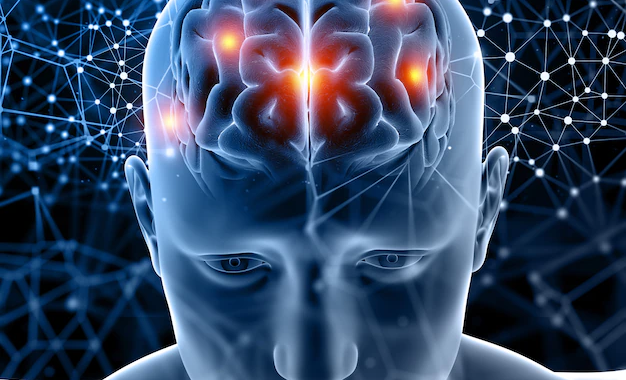Find out why we forget and tips we can apply to improve our memory.

Have you ever forgotten the name of an acquaintance, the clothes you wore the week before, where you placed your keys or glasses, your password, or what you studied? Many of us can relate to such lapses. Forgetting is an inevitable part of life. Likely, we would all agree that we could do well with better memory.

WHAT IS MEMORY?

Memory is defined as the ability to acquire, store, retain, and retrieve information. Significantly, various parts of the brain are involved in the complex process of memory. Our memory is like a muscle. It is trainable, flexible, and expandable. To improve memory, it is practical to first consider why we forget.
WHY DO WE FORGET?
Many factors account for memory lapses.
The reasons we forget are multidimensional and range across multidisciplinary factors inclusive of biological, medical, cognitive, psychological, and behavioral. The following highlights examples of factors affecting memory.
Biological Reasons We Forget: Genes

Some scholars attribute memory lapses to genetics. Gene theory argues that individuals with specific genetic types are more likely to have superior memories and may display traits such as improved name recall, rapid recollection of events, and a greater aptitude for learning new languages and skills.
According to research, genes can also affect how well one remembers. For example, according to geneticists, changes in the KIBRA and CLSTN2 genes are associated with memory performance. Hence, memory function may be influenced by genetics.
Biological Reasons We Forget: Age

Memory tends to deteriorate with advancing age. One primary reason is that the hippocampus, a part of the brain involved in the storage and recall of memories, degenerates. Scholars also posit that genes contribute to memory loss among the aged.
Medical Reasons We Forget: Diabetes

Certain health conditions can predispose an individual to develop memory lapses. For example, people who suffer from diabetes are more prone to developing dementia and other memory-related health problems. Scientists theorize that high blood sugar may damage tiny blood vessels called capillaries in the brain. Alternately, scholars believe that it may be that high insulin damages brain cells, thereby resulting in memory decline.
Medical Reasons We Forget: Stroke

Similarly, a stroke is associated with memory challenges. The resultant damage to brain tissue can make it difficult to recall information; a condition typically referred to as vascular dementia. I witnessed this firsthand when my sister suffered a stroke at only ten years of age.
Medical Reasons We Forget: Heart Disease

Likewise, atherosclerosis, a health condition caused by the accumulation of plaque in the arteries can reduce blood flow to the brain and other organs; hence resulting in memory challenges. Other health conditions that may impair memory include thyroid, kidney, or liver disorders.
Psychological Reasons We Forget: Anxiety & Depression

Anxiety can also result in declining memory. Correspondingly, depression is associated with memory problems, such as forgetfulness and confusion. However, depression is specifically associated with short-term memory loss. Scholars contend that long-term memory and procedural memory, which control motor skills, are unaffected.
Also, numerous prescription and over-the-counter drugs might affect memory function or even result in memory loss. These include anti-anxiety drugs, antidepressants, antihistamines, muscle relaxants, tranquilizers, sleeping pills, and painkillers. Hence, sedative drugs like tranquilizers and sleep aids may impair memory.
Behavioral Reasons We Forget: Lack of Sleep

Sleep deprivation is linked to cognitive impairments inclusive of reduced memory functioning. Similarly, sleep disorders that lead to excessive daytime sleepiness such as narcolepsy can lead to memory lapses.
Behavioral Reasons We Forget: Diet

Research demonstrates a connection between the gut and the brain (Ahmad et al. 2021). Therefore, on account of the gut-brain axis, an improper diet can affect cognitive abilities such as recall. Moreover, poor diet is linked to an overproduction of a stress hormone that can activate microglia and astrocytes* in the brain (Garland et al. 2022). The resulting inflammation in certain parts of the brain, including the hippocampus, can negate cognitive faculties, thereby impairing memory.
HOW TO REMEMBER

1| Stimulation

According to the psychology literature, though genes have an impact on cognitive ability, critical skills such as memory are not fixed, but are malleable. Therefore, memory can be improved via memory training and enhancement techniques, as highlighted below.
Try to understand.

Understanding what you've read is crucial in determining how to remember what you've studied. Information that is arranged and that which makes sense is easier to recall. Try to first understand a concept before attempting to memorize it.

Make connections.

Link the material you're attempting to recall to something you already know. Material that is linked to other ideas is much easier to learn and remember than unassociated material. If there isn't an obvious relationship, get imaginative and create a connection. Sometimes the best approach to remembering what you've learned is to associate the new knowledge with an absurd or bizarre concept.

Use your imagination.

Dr. Julia Shaw, a psychologist and scientist at University College London, recommends using mental images that engage all of the senses and elicit intense emotions. In her book, The Memory Illusion, Dr. Shaw writes that visual memories retain better when they elicit strong emotions. Memory retrieval becomes easier when the material is linked to visuals. Using visuals to assist us remember what we study is a very effective recall strategy. Therefore, create a visual impression of the concept you study.

Learn through chunking.

Learning by chunking is an active learning technique characterized by chunking, which is described as cognitive processing that recodes information into meaningful groups, referred to as chunks, to improve learning efficiency or capacity (Fountain & Doyle, 2012). Chunks of information are typically made up of familiar or relevant groups of data that are recalled collectively. Learning through chunking augments working memory capacity by reducing memory load and facilitating knowledge acquisition and recall.

Let’s assume that you wanted to study the verb tenses in English. Essentially, there are only three verb tenses: the present, past, and future. But there are 4 different aspects within these tenses: simple, continuous, perfect simple, and perfect continuous. Combining these 4 aspects with the 3 verb tenses, result in a total of 12 verb tenses. Rather than studying all 12 tenses simultaneously, we could organize the tenses into manageable chunks by focusing on a specific tense along with the related aspects of that tense. As an example, a student could focus on the simple present, present continuous, present perfect, and present perfect continuous collectively.

Use mnemonics.

Mnemonics are techniques that connect information to more meaningful or structured concepts. Mnemonics provide meaning to objects and ideas to make them more memorable. This method is excellent for retaining knowledge in both short-term and long-term memories. For instance, making a mnemonic statement that incorporates all the vocabulary a language learner is attempting to remember is a recall technique. For example, to recall the meaning of 'distress', one could imagine the cartoon mouse character 'Jerry' disrespecting the accompanying cat character, 'Tom', leaving him feeling stressed. Similarly, the mathematical principle PEMDAS, which signifies Parentheses, Exponents, Multiplication/Division, and Addition/Subtraction is frequently recalled using the mnemonic "Please Excuse My Dear Aunt Sally."

LEARN MORE
2 | Take Care of Your Health

Scholars agree that exercising, getting adequate sleep, eating a healthy diet, and managing stress support a healthier brain and improved recollection.
Exercise.

According to Grace McGregor (2021), exercise enhances memory by activating molecular targets such as brain-derived neurotrophic factor (BDNF). This molecular component promotes synaptogenesis, the creation of new synapses that mediate learning and memory, thereby facilitating information absorption and the formation of long-term memories. So, to enhance memory, stay active.
Sleep.

Have you ever heard the expression "I'll sleep on it"? This phrase is an idiomatic expression that refers to a delay in making a decision. Perhaps the term is rooted in the view that sleep enables better cognition, which supports better recollection. During the deep stages of sleep, memories appear to become more stable in the brain. Following that, REM (the most active stage of sleep) appears to have a role in connecting similar memories. That's why getting a good night's sleep can help with problem-solving. Moreover, a pattern of sufficient rest is linked to improved recall capabilities. So don't scrimp on sleep. Getting adequate rest can boost memory.
Eat well.

Studies show a positive correlation between a healthy diet and memory. For instance, researchers believe that complex carbohydrates deliver a consistent source of energy required for appropriate brain activity. Correspondingly, iron aids in the oxygenation of the blood and is necessary for attention and concentration. Similarly, B vitamins aid in the production of brain chemicals that are necessary for memory formation.
3| Treat Disorders

Scholars believe that individuals who receive treatment for mood disorders may experience improved memory function. So, if you suffer from a mood disorder, such as depression or anxiety, which may be impacting your memory, follow your healthcare provider's advice on treating such medical conditions. The better your mental and emotional health, the better your recall capabilities. However, a word of caution: consult with your doctor regarding the side effects of medicinal treatment as some medicines may also negatively impact memory.

FINAL THOUGHTS
Do you remember the title of this article? Kudos to you if you do. And if you don't, that's understandable. In reality, everyone invariably forgets at one point or another. Fortunately, memory is flexible and can be improved through effective training. Memory training measures include engaging in mental stimulation, caring for our health, and treating disorders. Applying these measures may result in improved memory.
From VIP English Learners, happy memories!
EXPRESSIONS EXPLAINED
*Astrocytes and microglia are both types of glial cells, which are essential cells in the central nervous system (CNS) that maintains homeostasis** and supports the function of neurons.
**Homeostasis refers to the biological ability to maintain a stable internal environment in response to changes present in the external environment.
DISCLAIMER
The information provided by VIP English Learners is for general informational and educational purposes exclusively. VIP English Learners does not provide nor endorse any particular medical advice. The information shared in this article is strictly based on current research and is not a substitute for professional medical advisory. Accordingly, before implementing any action based on the information provided, we encourage you to consult relevant professional healthcare providers.


















































Comentarios